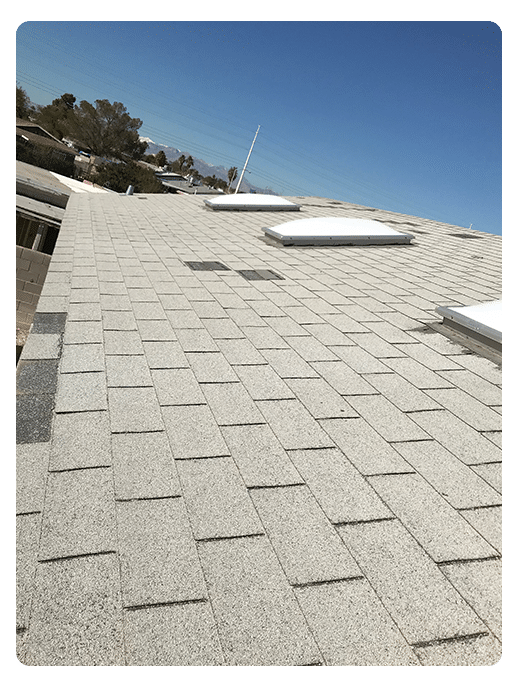The installation of solar panels on the roof of one’s home is becoming an increasingly popular choice for homeowners.
This renewable energy source offers several benefits to those who take part in it, such as reducing electricity costs and making a positive contribution to environmental sustainability.
By exploring the unique advantages that come with installing solar panels on one’s roof, this article will provide readers with insight into why they should consider participating in this technology.
Solar panel installations have become more accessible than ever before due to recent advancements in photovoltaic technologies and government initiatives designed to encourage their use among citizens.
In addition to these developments, there are also economic incentives available for some households that choose to install this type of renewable energy system.
All of these factors combine to create an opportunity for homeowners to save money while doing something good for the environment at the same time.
Cost Savings
Installing solar panels on the roof of a home can lead to significant cost savings over time. The initial installation costs are usually offset by generous tax incentives from both federal and state governments, allowing more homeowners to take advantage of this technology.
Furthermore, with an increase in efficiency, newer models of solar panel systems produce more power for less money than older models did.
In addition to government incentives, homeowners who install solar panels may also benefit from reduced utility bills each month. Solar energy is a renewable resource that produces clean electricity without any additional pollution or emissions; thus, it helps reduce dependence on traditional sources of energy such as coal and natural gas.

As a result, many states have begun offering net metering programs which allow those with rooftop solar panels to sell their excess electricity back into the grid at retail rates or receive credits towards future purchases. This ultimately results in lower monthly electric bills for consumers while reducing overall carbon footprints and helping protect the environment in the process.
Environmental Impact
Installing solar panels on a home’s roof has multiple environmental benefits. Solar panels reduce the amount of electricity consumed by households, thereby reducing their dependence on fossil fuels and greenhouse gas emissions produced from burning them to generate electricity.
This in turn reduces air pollution that can cause respiratory illnesses and other health problems among people living nearby. The installation of solar panels also helps conserve natural resources such as water and land which are used for generation of non-renewable energy sources like coal, oil and nuclear power plants.
Additionally, since solar modules require no fuel or materials to operate, they produce zero waste and consume very little land area when installed properly on rooftops. Ultimately this leads to lower costs associated with resource management, making it an economically viable solution for homeowners looking to go green.
Government Incentives
In addition to the environmental benefits of installing solar panels on your home’s roof, there are also financial incentives available from both state and federal governments.
In some states, homeowners who install solar panels can receive a tax credit for up to 30% of their total installation cost. The amount of this credit varies by state, but it is typically determined by the value of energy generated over a certain period of time.
The Federal Investment Tax Credit (ITC) is another incentive that has been established to encourage more people to adopt renewable energy sources. This program allows you to deduct 26 percent of the cost of the entire system from your taxable income in 2020.
Additionally, if you choose not to take advantage of the full ITC immediately, you can spread out deductions between 2021-2023 for an additional three years — allowing you to maximize potential savings.
Photovoltaic Technologies
Photovoltaic technologies provide a viable, sustainable source of electricity for residential homes. Solar cells are made from semiconductor materials and convert sunlight into direct current (DC) electricity by the photovoltaic effect.
These solar panels can be used to generate energy that is stored in batteries or sent directly to an inverter which converts DC power into alternating current (AC). This AC power can then be used for household appliances or fed back into the utility grid for financial compensation.
The installation of a photovoltaic system on one’s home roof provides numerous benefits beyond just generating clean energy. It offers owners long-term savings as they no longer need to purchase power from their local electric utilities; instead they produce their own power at a much lower cost than what would have been paid through traditional means.
Additionally, homeowners may receive incentives such as tax credits and rebates when installing this type of renewable energy system on their property, further reducing costs associated with ownership and maintenance over time.
Design Considerations
When installing solar panels on a home’s roof, it is important to consider the design and aesthetics of the structure. It is essential that the system be placed in an area with optimal access to direct sunlight, as this will ensure maximum efficiency for energy production. The location should also have unobstructed views, free from trees or other objects which may shade or obstruct light.
Additionally, there must be adequate space around each panel to allow air circulation beneath them so they can operate at their best capacity. The materials used to mount the system should also be taken into account when designing a rooftop installation. Properly insulated wires connecting each panel are necessary for optimum performance, while mounting brackets should be selected based on weather resistance and durability within the local climate conditions.
Furthermore, care should also be given to making sure all components meet safety standards set by regional government agencies if applicable. By taking these considerations into account prior to any installation, homeowners can rest assured that their solar systems will perform optimally for many years to come.
Maintenance And Repair
Fitting solar panels to a roof is the first step towards taking advantage of the benefits they offer. The next stage is ensuring that these systems are properly maintained and functioning efficiently. To ensure this, there are several measures that must be taken on an ongoing basis.
Regular inspections should be conducted by qualified professionals who will check for any wear or damage caused by storms, hail or other extreme weather conditions. Any necessary repairs should also be undertaken at this time in order to maintain optimal performance from the system.
In addition, it is important to regularly clean the modules with soapy water, as dirt can reduce their efficiency. Furthermore, moving parts such as trackers need to be lubricated periodically and fastenings tightened if needed.
By following these steps each year, homeowners can keep their solar panel systems running smoothly and safely for years to come.

Homeowners Insurance Policies
The installation of solar panels on a home’s roof can provide homeowners with numerous benefits.
One such benefit is the potential impact that it could have on their homeowner’s insurance policy and premiums.
Homeowners who install solar panels may be eligible to receive discounts on their policies, as well as other incentives due to the decreased risk for property damage or liability claims associated with using renewable energy sources.
Additionally, these homeowners may also qualify for additional coverage in the event of unexpected damages caused by an accident or natural disaster related to their solar panel system.
By taking advantage of these opportunities, homeowners can potentially reduce their overall financial burden when insuring their residence while simultaneously reducing environmental harm.
Conclusion
Installing solar panels on the roof of one’s home is an excellent choice for many reasons. Cost savings, environmental impact, government incentives and photovoltaic technologies are all factors that should be considered before making this decision.
Additionally, design considerations, maintenance and repair requirements as well as homeowners insurance policies should also be taken into account.
By carefully researching these topics and selecting a quality system, homeowners can enjoy cost savings while contributing to an environmentally friendly lifestyle.
Ultimately, installing solar panels on the roof of one’s home provides benefits both financially and ecologically which make it an attractive investment for any homeowner looking to reduce their energy costs and carbon footprint.


